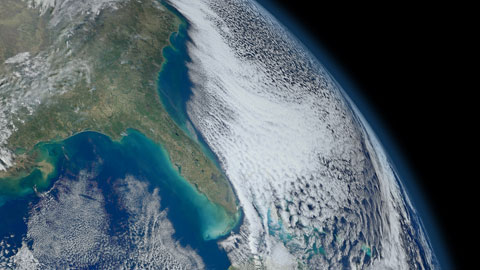The UAB to assess the effectiveness of EU sustainability policies

02/06/2016
Very often policies enforced by the European Union to deal with the issue of sustainability are based on “scientific evidence” that is based on scientific models which do not consider the full range of implications of the chosen problem across different scales and dimensions of analysis. As a result of this fact, “scientific evidence” based on reductionist science not always tackles relevant issues and very rarely proves to be effective in providing the expected results.
This is the starting assumption of the MAGIC project coordinated by the Institut de Ciència i Tecnologia Ambientals de la Universitat Autònoma de Barcelona (ICTA-UAB) which has been funded with 7.5 million Euros by the European Union (Programme Horizon 2020). The project aims to analyse the role of “scientific evidence” in the process of decision making within the European Union and propose more effective procedures when using science in the process of governance.
The title of the Project is “Moving towards Adaptive Governance in Complexity: Informing Nexus Security” and the consortium coordinated by ICTA-UAB includes eight more partners from Spain, Scotland, the Netherlands, Norway, Italy and Germany, plus the Joint Research Centre of the European Commission.
The proposed model is that of “co-production of useful information” in which a trans-disciplinary team of researchers – integrating different disciplinary expertise – will work together with EU staff in order to identify relevant issues to be considered in the problem structuring and develop an effective integrated analysis supplying useful information for the decision making process. This model of co-production should guarantee a better quality for the scientific evidence needed to implement the Strategy 2020 of the EU and a better informed discussion at the international level on global questions such as climate change and food security.
MAGIC will start with a critical appraisal of the existing narratives about sustainability, proposing alternative views and “thinking out of the box”. In particular, the critical appraisal will be based on a quantitative analysis based on the concept of the nexus: establishing a link between food security, energy security, water security (in relation to the patterns of consumption), climate and land use. This integrated analysis across multiple scales is based on an innovative approach mixing theoretical concepts developed in complex systems theory, system ecology, bio-economics and science and technology studies.
This integrated approach will be applied to two lines of discussions: an analysis of the factors to be considered when dealing with the assessment of technical innovations, e.g. fracking, second generation of biofuels, technical changes required for a circular economy, what to do with Genetically Modified Organisms, the potential role of desalination; and a critical appraisal of the existing directives used for dealing with the predicament of sustainability. The goal is to generate a reflection on the risks associated with an excessive confidence in the “Cartesian dream” that science can given to humans the power of absolute prediction and control.
“Every time we base our decision on the quantitative output of models based on the adoption of just a single scientific discipline and scale at the time, we are missing alternative narratives about the identified problem that can be perceived only using different disciplines and scales. This implies that the consequences of the chosen policies not only are unknown, but also that they may be counterproductive in relation to the original goal”, says Mario Giampietro, ICREA Researcher at ICTA-UAB and coordinator of the project. “A clear example of this fact has been given by the production of the first generation of biofuels. The large demand of land, water and other resources needed to generate biofuels implied a major negative effect on food security in many areas of the world”, explains Giampietro.
An analysis based on the nexus between water, energy, food, and land use at the scale of the whole planet in relation to the implication for the population and the climate will make easier to detect systemic problems or negative consequences of innovations and policies implemented by the European Union.
The project is organized in three structural/functional components: a “Nexus Dialogue Space” coordinated by the Joint Research Centre of the European Commission, which will guarantee the collaboration of the researchers with staff of the European Commission (in the different DGs and other EU institutions); “Nexus Information Space”, which will coordinate and integrate the scientific assessment of the different teams expert in food production, energy, water and land use, in order to guarantee the congruence with the constraints provided by the nexus, and a “Nexus Knowledge Hub”, an interactive platform used to bring into the discussion other social actors such as the industry, NGOs, Universities, and the rest of society.
The impact expected from the MAGIC project is twofold. On the one hand, the generation of new methodologies and procedures to guarantee a quality control on the process of production and use of scientific information in the process of decision making. This result will be particularly relevant for the policy makers (in this case the DGs of the EU), which will have analytical tools capable of better handling the implication of complexity, such as the unavoidable presence of uncertainty, the co-existence of legitimate but contrasting perspectives about what to do, the implication of the existence of multiple scales.
On the other hand, a critical appraisal and an informed reflection on the feasibility, viability and desirability of the policies actually implemented by the EU, e.g. water directive, CAP (agricultural policy), low-carbon economy, circular economy, and a critical appraisal of the methods currently used to discuss the pros and cons of innovations such as fracking, biofuels, tradable permits, GMOs, desalination.
The other partners of the consortium led by ICTA-UAB are Hutton Institute James (Scotland), Wageningen University (The Netherlands), Twente University (The Netherlands), University of Bergen (Norway), European Commission - Joint Research Centre, University of Naples Federico II (Italy), Climate Analytics (Germany), and the Institute of Technology of Canary Islands (Spain).